Why is India's next president so unknown?
- Published
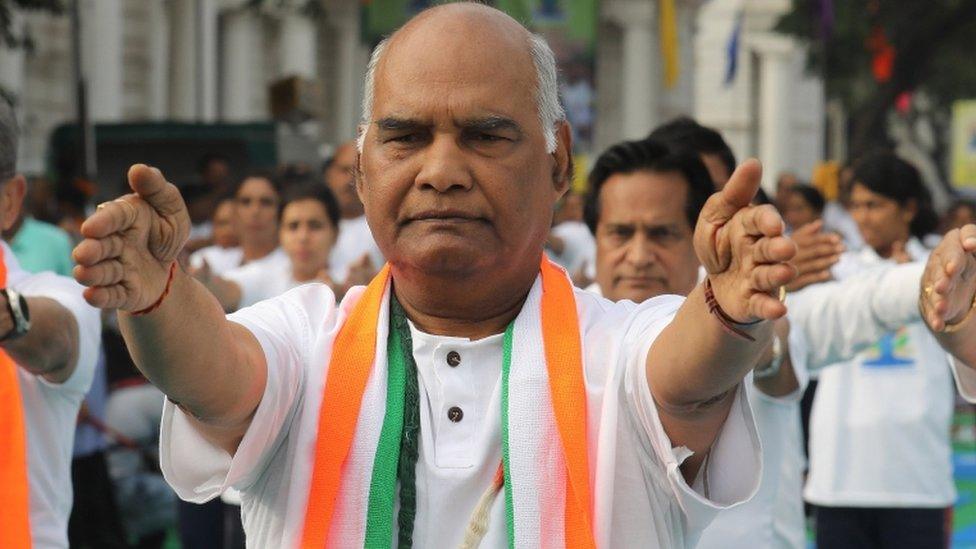
Ram Nath Kovind, former governor of the northern Indian state state of Bihar, has been elected as the country's new president. BBC Hindi's Vineet Khare profiles a man many Indians have never heard of.
"I have been writing about the Dalits [formerly untouchables] for 27 years. But I first heard of Ram Nath Kovind the day he was nominated for India's next president."
Dalit writer-activist Chandrabhan Prasad is not alone in claiming that he does not know about the man who has just been elected to the top constitutional post.
His nomination by the ruling Bharatiya Janata Party (BJP) caused so much surprise that a local media report, external quipped that it "seems only two people knew about his candidature. PM Narendra Modi and God".
It added that his name had been entered more than 500,000 times on Google within 24 hours of the announcement of his candidacy.
When BJP president Amit Shah declared that Mr Kovind would be the party's nominee, he described him as a Dalit who had "struggled his way up to such a high position in his political career".
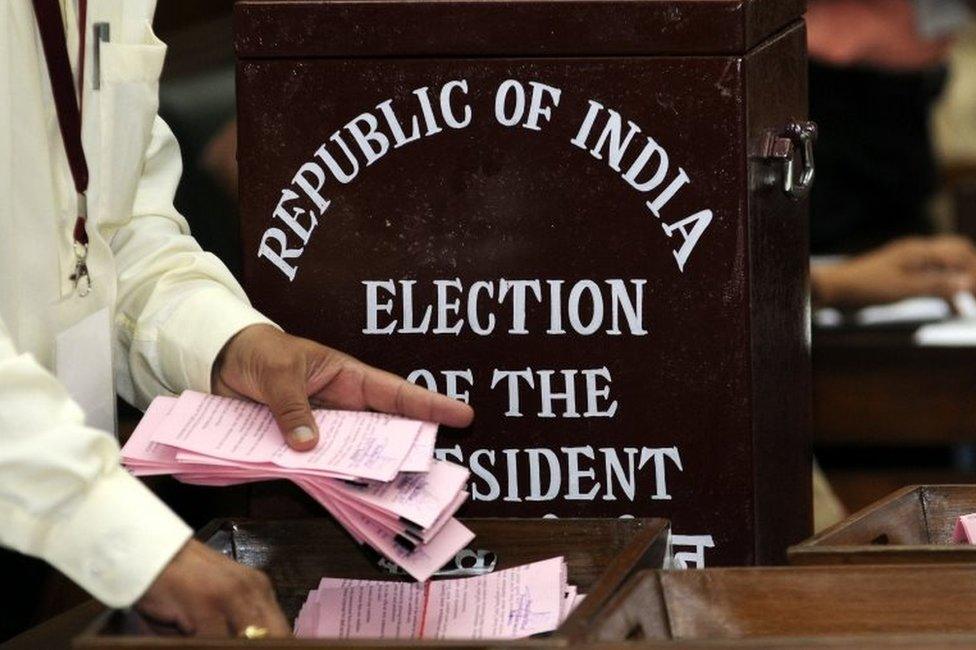
Vote counting was held on Thursday
The Dalits sit at the bottom of the Hindu caste system in India and complaints of discrimination are still widespread. Many in fact, accuse the BJP of perpetuating the Brahmin-led caste order where Dalits figure at the bottom, and say Mr Kovind's nomination comes at a time when the party is being accused of being insensitive towards the community.
The five-year job is largely ceremonial but could be crucial when elections throw up fragmented mandates.
However, many prominent Dalits say they are unaware what contributions, if any, the new first citizen has made on behalf of the community.
"I go to seminars on Dalits. I write opinion pieces. I appear on TV debates. My job is to work around the subject. But I don't know anything about him," said Mr Prasad.
"I have never heard him take a stand on Dalit issues. It could be my ignorance.
"He seems to be an educated, conscientious person but I have never heard him comment on the atrocities against the Dalits," complained another Dalit writer, who preferred anonymity.
"The move to install a Dalit to the ornamental post is symbolic. Did the appointment of [India's first Dalit president] KR Narayanan help the community in any way? If the ideology of the party is not supportive of the Dalit cause, it doesn't make much difference," he said.
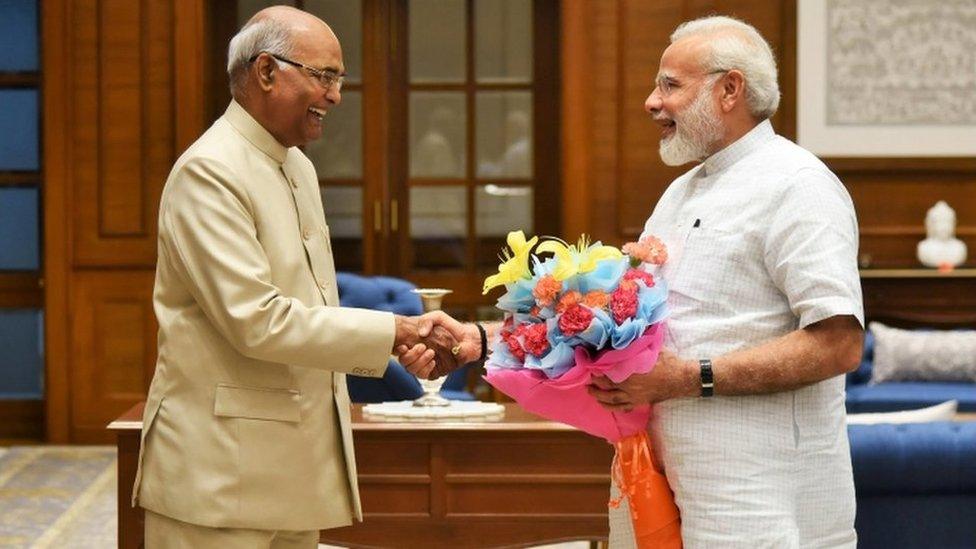
Ram Nath Kovind and Prime Minister Narendra Modi have known each other for a long time
"The party has gone for a man who is not towering, is media shy and whose political and ideological orientation is in sync with Mr Modi," senior journalist Siddharth Varadarajan told the BBC.
Mr Kovind's long-time neighbour Jageshwar, a Dalit in the northern city of Kanpur, claims he cannot recall if Mr Kovind, "son of a cloth-seller, ever campaigned for a Dalit cause".
Kanpur journalist Ramesh Verma agrees the new president has kept a low profile.
"He stayed away from the media as he didn't want to be controversial," Mr Verma told the BBC.
"I never saw him attend Dalit programmes. In fact, he never projected himself as a Dalit leader."
Easygoing man
So what is known about Mr Kovind?
A handful of YouTube videos of his speeches show that he is fluent in both Hindi and English.
The activists who spoke to the BBC agree that he is a soft-spoken man who "prefers to stay away from controversies".

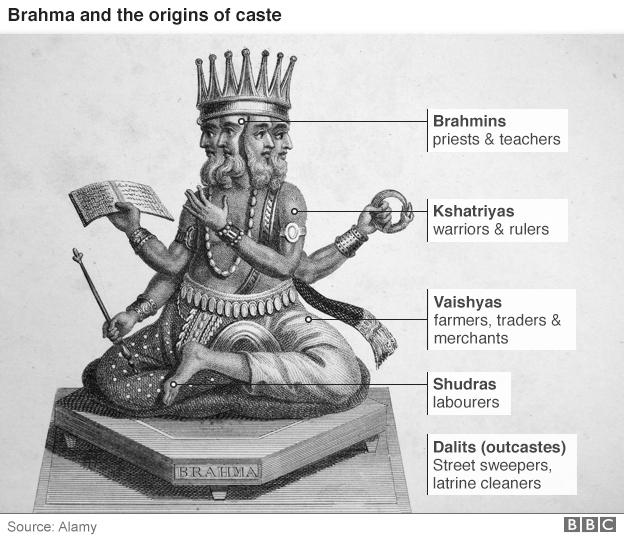
What is India's caste system?
The system which divides Hindus into rigid hierarchical groups based on their karma (work) and dharma (the Hindi word for religion, but here it means duty) is generally accepted to be more than 3,000 years old.
The caste system divides Hindus into four main categories - Brahmins, Kshatriyas, Vaishyas and the Shudras. Many believe that the groups originated from Brahma, the Hindu God of creation.

A "committed member" of the right-wing RSS, the ideological fountainhead of the BJP, Mr Kovind rose to become a lawyer and served two terms in the upper house of parliament.
He has also been the party's spokesperson, led a BJP Dalit organisation and has held several important party posts.
"His closeness to the RSS helped him go places," senior Dalit leader in the BJP Sanjay Paswan told the BBC.
"Mr Modi and Mr Kovind have known each other for a long time. There is nothing wrong if the PM goes for a man with whom he shares chemistry," he said.
Mr Paswan also blamed the "caste bias" of the media for Mr Kovind's "anonymity".
"Dalit spokespersons are the last choice for India media," he claimed.
Mr Paswan also said Mr Kovind had many "achievements" that the "media refuse to talk about".
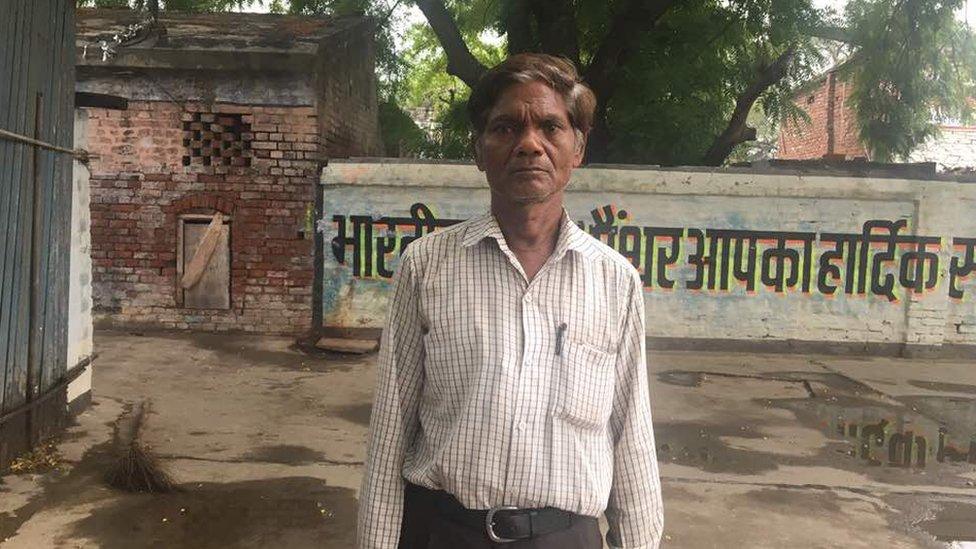
Neighbour Jageshwar claims Mr Kovind never hit the streets to campaign for the rights of the Dalits
"He has been instrumental in installing memorials of Dalit leader BR Ambedkar. He got the name of the welfare ministry changed to the social justice empowerment ministry - a phrase that conveys the true work of the ministry. He did a lot of work for the Dalit cause."
Another BJP spokesperson, Dr Bizay Sonkar Shastri, a Dalit who has known Mr Kovind for a long time, says his "presidential term would help bring forth the real problems of the Dalits".
"The question 'Kovind who?' is a commentary on the state of political journalism in India - an ecosystem based on babalog [childlike] and inheritor 'sources'," tweeted journalist Swapan Dasgupta, who is considered close to the BJP.
But Mr Kovind is not entirely without controversy.
A 2010 Hindustan Times report, external quoted him as saying that "Islam and Christianity are alien to the nation" at a press conference calling for the scrapping of a report that recommended government job reservations for socially and economically disadvantaged sections among religious and linguistic minorities.
"This was a political statement and is still the stand of the BJP. Mr Kovind's statement was a political one and it should be seen in that context," Mr Paswan said.